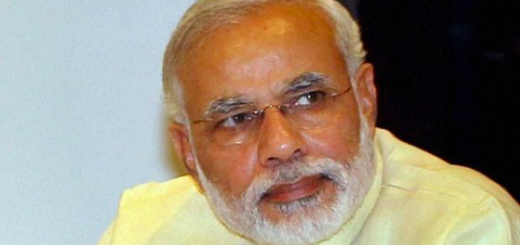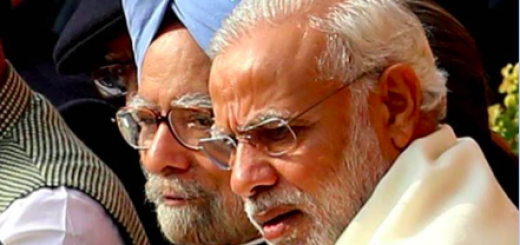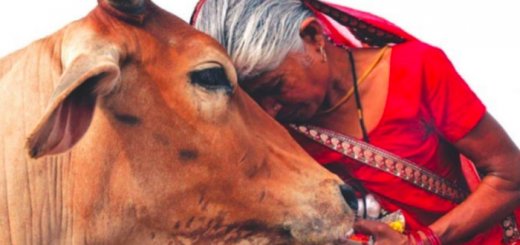Joke called Prohibition (A small peg is a good digestive)
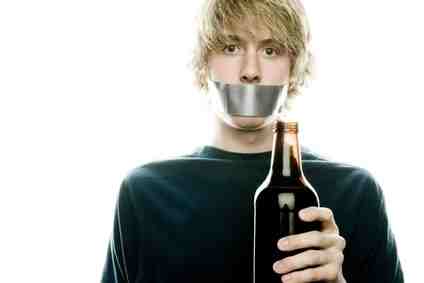
From the Time of Adam, Prohibition did not Work; Awareness Campaigns
May Help, Politics won't.
By T J S George, in New Indian Express, 01st May 2016
(Note: Literally prohibition is a joke, the whole world knows it, especially the Catholic church and the clergy who make a hue and cry about it. The fact is no one can be a priest if he is not a “wine bibber” or teetotaller(one who never drinks alcohol). You may wax eloquent with the biblical or church myth that consecrated wine is the blood of Jesus etc. Make the priest saying Mass drink two full glasses, and he is sure to flop down in the middle of the Mass. Any way who do these priests pretend to be? Whose follower are they? If of Jesus, he was widely known as a friend of the prostitutes and drunkards. Who can deny, he did not drink or threw wine parties for days of celebration? He started his public life with the wine party (water turned into wine at Cana, which was much stronger than the usual available ones.) He went through his life joining parties with the rich and well-to-do. He said the drunkards and prostitutes will enter the kingdome of God before the self-syled holy hypocritical priestly class. He ended his life throwing a wine party at the last supper and said he will drink again only in the next world. St.Paul advised his disciple Titus to stop his bad habit of not tasting win and recommended occasional zip for the sake of good stomach. If you say: I drink only water in Italy, they will retort: “Water? It is good only to get drowned; we drink wine, not water.” As a seminarian I have been instrumental to get a glass of Mass wine for a visiting towering Cardinal because he needed it after a sumptuous dinner. His image with lit cigarette in mouth is still fresh in my memory. That did not make me think ill of him or diminish my respect for him. That was the practice of the times then. I adored him then and I adore him now. What is needed is not prohibition but providing good cheap liquor, within the buying capacity of ordinary people. “Old Monk” rum got started that way by Monks in Europe who never drank. There is a whole lot to write in praise of modest use of clean liquor with any number of biblical quotes. I don’t attempt it here. Only think of the advise of St.Paul about eating pork: “If it scandalizes the faith of your credulous neighbour, don’t eat it before him, but eat to your heart’s content privately, out of his sight.” Everything is created for Man and man for 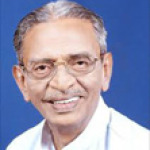 Christ and Christ for God. In eating and drinking only advise to follow is: “Do it moderately, eating and drinking anything too much is harmful to health. Use the good things God has given, don’t misuse or abuse them.” A small peg is a good digestive. james kottoor, editor)
Christ and Christ for God. In eating and drinking only advise to follow is: “Do it moderately, eating and drinking anything too much is harmful to health. Use the good things God has given, don’t misuse or abuse them.” A small peg is a good digestive. james kottoor, editor)
Does banning liquor really bring in the votes? We can imagine women feeling relieved that men won’t come home drunk and create scenes. But female population is falling notoriously in India, so the votes gained from happy women will be less than the votes lost through resentful men. This is why it is difficult to understand why there is a race among states to declare total prohibition.
Vote-wise, it doesn’t make sense. Revenue-wise, it makes nonsense: Bihar will lose `3,000 crore a year, 18 per cent of its total revenue, and Tamil Nadu as much as `30,000 crore, more than a quarter of its revenue. Kerala will lose `6,000 crore, although its population is only 35 million compared to Bihar’s 94 million. (For the typical Malayali, it’s a matter of honour that once a bottle is opened, it must be finished quickly. Per capita consumption of alcohol is highest in Kerala.)
Commonsense-wise, prohibition not only does not work, it produces contrary effects. This is because prohibition can only ban liquor; it cannot ban the demand for liquor. Such is the chemistry of the human mind that whenever there is demand, it will be met by supply. Which explains why prohibition has not worked anywhere at any time in history. There is a saying that prohibition did not work even in the Garden of Eden; Adam ate the apple that was forbidden.
The most tragic example of prohibition’s counterproductive nature was Bombay under chief minister Morarji Desai in the 1950s. As a Gandhian, he introduced prohibition with conviction. Overnight Bombay’s suburbs burst into underground activity. Such was the profitability of the illicit industry that crime syndicates got a stranglehold on life in Bombay. Unintentionally, Morarji Desai made it possible for Haji Mastan and Karim Lala and, yes, Dawood Ibrahim to rise. In the official celebration of Prohibition Week every year, the liquor mafia was the most enthusiastic participant.
Gujarat has been under total prohibition for decades now. No one complains because truckloads of liquor arrive from neighbouring states every day to ensure that demand is met by supply. Besides, excise, transport and police officials are always kept happy. Prohibition is a great lubricant.
It is clear that for the Morarji Desais of the world, prohibition is an article of faith, an inviolable principle of life. For today’s leaders, it is politics. Nowhere is this more evident than in Kerala. For the state Congress President, V M Sudheeran, a local edition of Morarji Desai, prohibition is a living tenet. When the closing of bars in the state became a big issue with cases going to the Supreme Court, he took a stand against the re-opening of some 400-plus closed bars. This did not sit well with the excise minister who, neck-deep in scandals, was a confidant of Chief Minister Oommen Chandy. As Sudheeran’s opposition to the bars looked like making him a popular hero, the tactician in Chandy announced a sudden policy change: Total prohibition in Kerala in a few years. It was a game of political oneupmanship. It turned into a farce as verbal battles became the focus of attention and Chandy’s excise minister devised new ways to please bar owners.
In 1995, then chief minister A K Antony banned arrack. Consumption of liquor did not go down by a drop. The flow of illicit brews increased as did the flow of hafta. Registers and computer floppies maintained by smart liquor contractors revealed that in the Trichur area alone, `14,000 was going to an assistant excise commissioner, `7,500 to an excise inspector, `4,000 to a preventive officer, `2,700 to an assistant excise inspector, and `3,500 to a circle inspector every month, in addition to “bonuses” on occasions like marriages. Prohibition promotes bribery as nothing else does.
Public awareness campaigns are the only practical way to tackle the universal social problem of alcohol. Such campaigns have shown results in the case of smoking. A state-funded national advertising campaign in the US called “Tips from former smokers” claimed significant success. The state can create conditions that will enable civil society also to participate in action plans against alcohol. A pro-active government can enforce two policies—ensure that there will be no demand for spurious liquor, and impose deterrent punishments for offences such as drunken driving. Policies based on mere sentiment will get us nowhere. Abraham Lincoln explained why: “Prohibition goes beyond the bounds of reason in that it attempts to control a mass appetite by legislation and make a crime out of things that are not crimes.”

